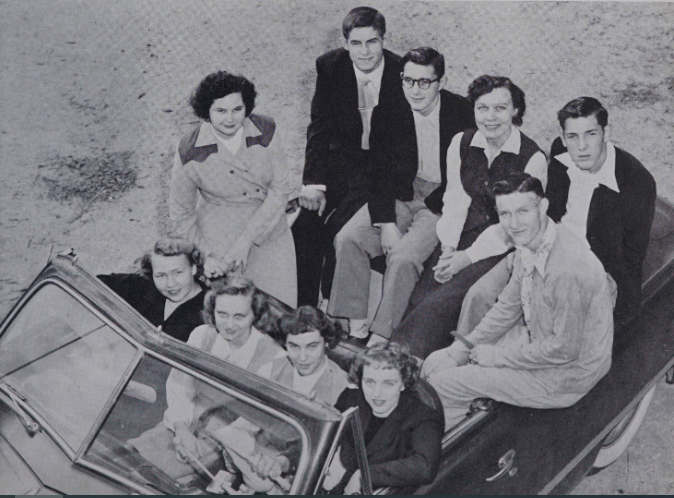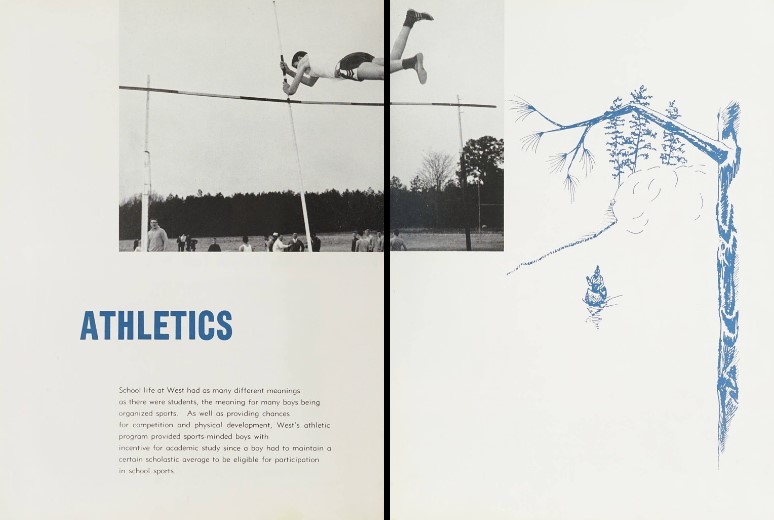Viewing search results for "Charlotte Mecklenburg Library"
View All Posts
Thanks to our partner Charlotte Mecklenburg Library, we now have new editions of yearbooks from Mecklenburg County Schools up on our website. We have the 1968 editions of East Wind, the East Mecklenburg High School yearbook; Somecka, the South Mecklenburg High School Yearbook; Ships & Cuts from Garinger High School; The Torch from Olympic High School, The Acorn from Harding University High School; Lion from West Charlotte High School; Post Script from Charlotte Country Day School; Mustang from Myers Park High School; Tomahawk from West Mecklenburg High School; and Spirit of ’68 from Independence Senior High School.
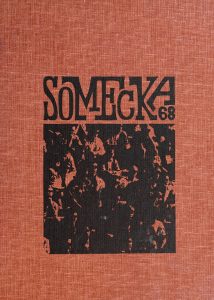
Front cover of the 1968 edition of Somecka, the yearbook for South Mecklenburg High School in Pineville, North Carolina.
You can see yearbooks and a number of other items we’ve scanned for Charlotte Mecklenburg Library on their contributor page. For more information about this partner, visit their website.
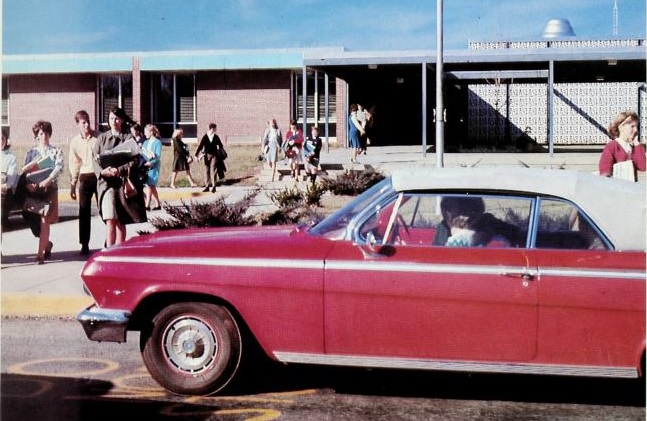
Several new high school yearbooks from Mecklenburg County are now online on DigitalNC, courtesy of our partner institution, the Charlotte Mecklenburg Library. Included are copies of various yearbooks around the county, all from 1967. The yearbooks contain individual school portraits, group portraits, and photographs of sports, activities, and their school groups.
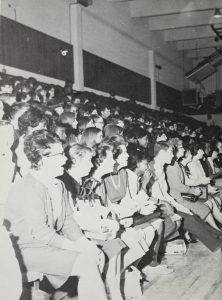 To view the yearbooks, visit the links below:
To view the yearbooks, visit the links below:
Also new to our collection is a program from the 2017 Theresea C. Elder Trailblazer Awards Brunch, held in Charlotte. Created by Mrs. Elder in 2005, the Charlotte-Mecklenburg Black Heritage Committee was formed to “research, collect and disseminate” historical information about the African-American community in the Charlotte Mecklenburg community. The 2017 brunch honored the Charlotte Post Publishing Company, the minority owned and operated news organization in North Carolina and South Carolina. The 2017 keynote speaker at the event was Mary C. Curtis, a columnist, journalist, national politics correspondent and speaker.
To see more from the Charlotte Mecklenburg Library, click on their partner page or visit their website to learn more.
![De Hi Sco [1947], page 74](https://www.digitalnc.org/wp-content/uploads/2017/01/DeHiSco_1947p74.png)
De Hi Sco [1947], page 74
The yearbooks are like many hosted on DigitalNC, documenting the lives and activities of students during the early 1950’s. They reflect many of the fashion and cultural patterns of the period for students in the white community.
![The Viking [1952], page 44](https://www.digitalnc.org/wp-content/uploads/2017/01/Viking_1952p44.png)
The Viking [1952], page 44
In addition, this batch also contains several campus publications from Carver College (later Mecklenburg College), the predominantly Black community college in the area. The catalogues detail the many program offerings and degree types that were available for students.
Carver College has a unique story. This community college and its white counterpart, Charlotte College, were the center pivot of the segregation debate for the Charlotte Mecklenburg School System during the early 1960’s. The debate centered on whether Charlotte needed both community colleges or if the city could be served by just one, integrated community college. These catalogs demonstrate the level of education at stake for those in the Black community in Charlotte, prior to the community college debate. You can see more primary sources about the community college debate in Charlotte by following this link to another post on the DigitalNC Blog.
Newly Digitized Campus Publications:
![Carver College Annual Catalogue [1959-1960], page 2](https://www.digitalnc.org/wp-content/uploads/2017/01/Screen-Shot-2017-01-10-at-7.24.02-AM.png)
Carver College Annual Catalogue [1959-1960], page 2
![Mecklenburg College Annual Catalogue [1962-1963], page 2](https://www.digitalnc.org/wp-content/uploads/2017/01/Screen-Shot-2017-01-10-at-7.23.38-AM.png)
Mecklenburg College Annual Catalogue [1962-1963], page 2
All of these documents help to paint a picture of segregation, desegregation, and the complexities involved with each for a complicated debate in mid-century North Carolina. These primary sources could be excellent resources for teachers creating lesson plans about this period, seeking tangible documents from local communities.
To learn more about Charlotte Mecklenburg Library, please visit their contributor page or their homepage. To see more yearbooks and campus publications that tell the stories of communities in times of transition, check out the North Carolina Yearbooks Collection and limit your search by year.

The latest batch of materials from Charlotte Mecklenburg Library includes an interesting look at life during World War I in North Carolina–documented through newspapers. The Caduceus, published from the Base Hospital at Camp Greene, gives a detailed look at the goings on of soldiers, doctors, and nurses during their time stationed in Charlotte.
Camp Greene held more than 40,000 troops, rapidly approaching the population of the entire city of Charlotte (46,000 in 1920). The Base Hospital was a 2000 bed complex, staffed by many doctors and nurses. Many of these enlisted personnel wrote articles for the paper, which was published every Saturday. Funded through the advertisements purchased by local businesses, publishers encouraged those living at the camp to patronize businesses located nearby.
What sets the Caduceus apart from other camp newspapers during the period is its documentation of events happening at the camp specifically, as opposed to the national and war updates given by other papers. From baseball games verses local teams to the performances of soldiers’ choral groups, the Caduceus documents many of the weekly activities of those based at the camp. The images below represent some of the many types of materials published in the paper.
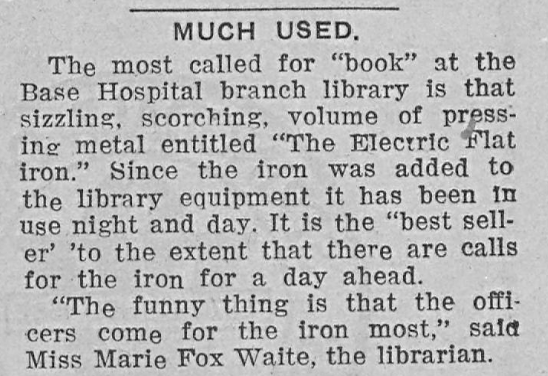
Caduceus, August 24th, 1918; page 15
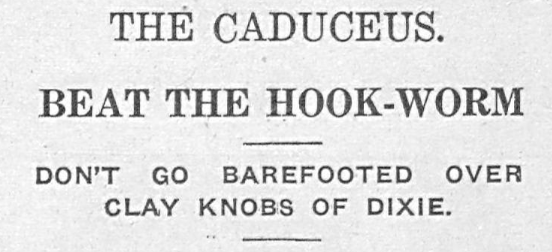
Caduceus, June 8th, 1918; page 6
Another fascinating feature of this batch is the weekly section authored by nurses serving at the camp. The “Army Nurse Corps News” offers a look into the lives of the many women who also served their county during WWI. These sections of the paper published news, poetry, and biographical information about nurses who were on the base, especially the new arrivals. This could be an excellent resource for researchers studying women’s roles in WWI, even outside of North Carolina.
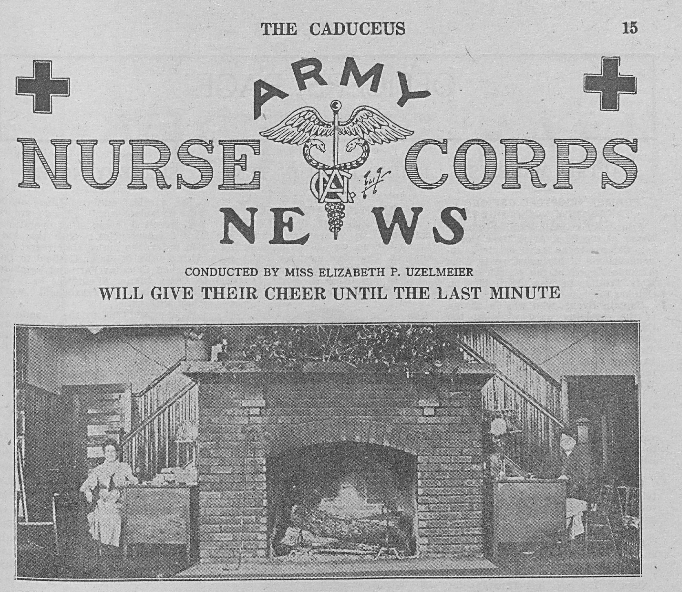
Caduceus, November 23rd, 1918; page 15
To learn more about Camp Greene, check out the Trench and Camp and the corresponding blog post, another newspaper from the camp during WWI, available on DigitalNC.
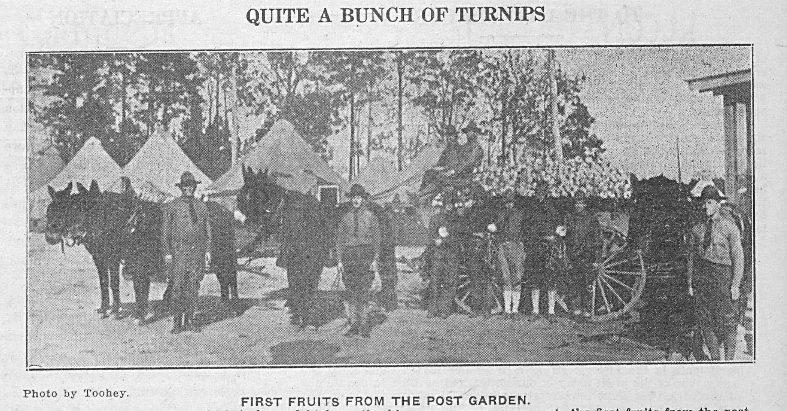
Caduceus, November 23, 1918
To learn more about the Charlotte Mecklenburg Library, please visit their contributor page or the homepage. To see more newspapers from North Carolina, including those that cover WWI in our state, please visit the North Carolina Newspapers Collection.
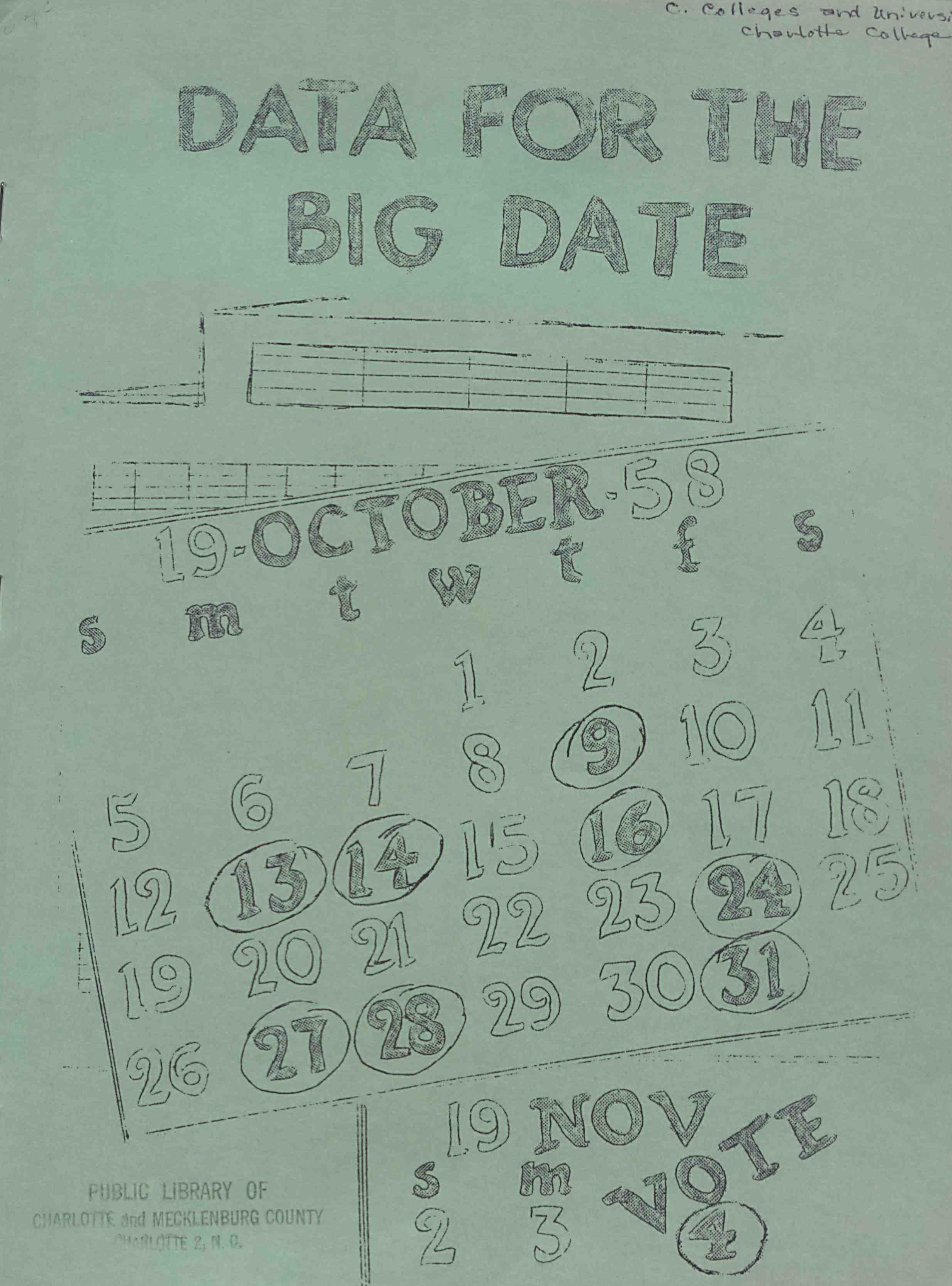
Data for the Big Date, cover
Several new items from Charlotte Mecklenburg Library are now available online. These items tell the story of two Queen City community colleges and the social issues surrounding them– specifically Carver College and Charlotte College.
The materials in this batch document the conversation surrounding several bond elections held in Charlotte in the late 1950’s to the early 1960’s. These bond elections centered on a debate about whether Charlotte should have two community colleges– one for white students and one for Black students. The report “Should Charlotte Build Two Community Colleges?” summarizes the arguments on both sides and gives a detailed narrative about how various stakeholders in the education community responded to social changes in North Carolina during the 1960’s.
These items could be excellent primary source documents for educators constructing curriculum about the civil rights movement in North Carolina.
View all of the new documents at the links below:
You can see more information about Carver College by browsing their materials in the North Carolina Yearbooks Collection. You can learn more about the Charlotte Mecklenburg Library by visiting their contributor page or their website.
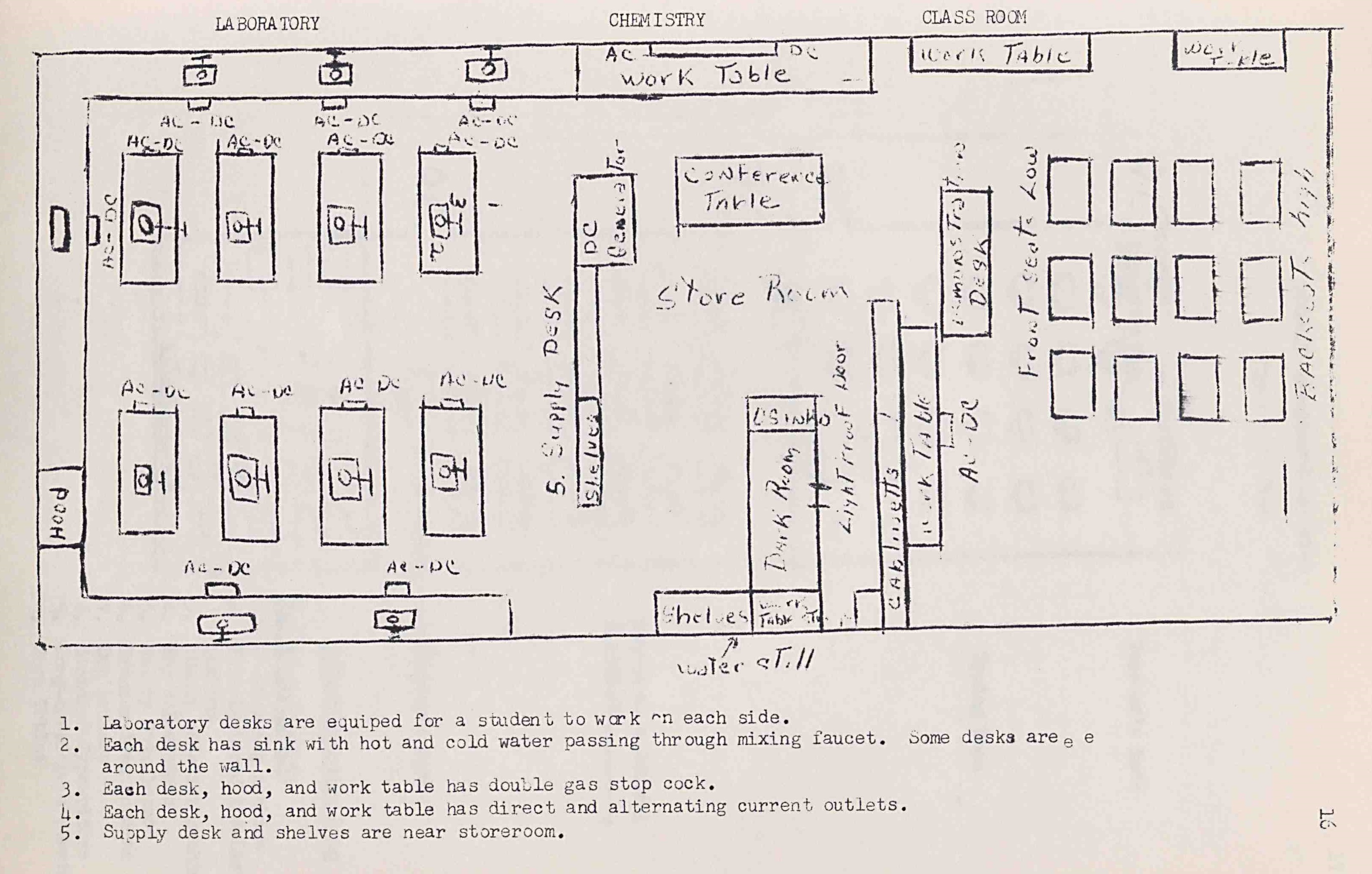
Information on Carver College, page 17

Oaklog [1950], page 19

The Clock [1950], page 5
These yearbooks come from Thomasboro High School, Davidson High School, Oakhurst High School, Cornelius High School, and Sterling High School. With the exception of Davidson, they are the first editions currently available from these schools.
You view the newest volumes at the links below:
To see more high school yearbooks and to learn if your high school yearbooks are online, please visit the North Carolina Yearbooks Collection. To learn more about the Charlotte Mecklenburg Library please visit the contributor page or the website.
Thanks to our partner the Charlotte-Mecklenburg Library, we now have yearbooks from local Charlotte high schools on our website up to 1969. The yearbooks are from several Charlotte, NC high schools, including Independence Senior High School, Garinger High School, Central High School, Harding High School, West Charlotte High School, East Mecklenburg High School, Myers Park High School, Charlotte Country Day School, and West Mecklenburg High School. These yearbooks are in addition to an already large collection of yearbooks from Charlotte on DigitalNC, which can be viewed here and span 1909 to 1969.
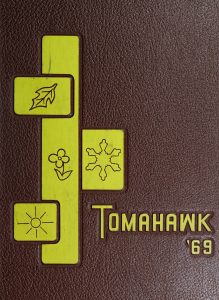
The cover for the 1969 edition of The Tomahawk, the yearbook from West Mecklenburg High School, in Charlotte, NC.
For more information about the Charlotte-Mecklenburg Library, check out their website and their partner page.
Three Charlotte-area high school yearbooks are now available on DigitalNC, thanks to our partners at the Charlotte-Mecklenburg Library! 1953 and 1954 yearbooks from West Mecklenburg High School have been added to our existing collection of West Mecklenburg High yearbooks. These volumes are now the earliest West Mecklenburg High available on the site. We are also excited to upload a new yearbook from Paw Creek High School. This 1951 yearbook depicts a slice of North Carolina teenage life in the early 1950s, and is our first from that decade.
To view all of our materials from Charlotte-Mecklenburg Library, view their contributor page here. To explore more yearbooks from across the state, please visit our North Carolina Yearbook Collection here.
A 1965 yearbook from West Mecklenburg High School has just been added to our digital yearbook collection on DigitalNC. We would like to thank our partners at the Charlotte Mecklenburg Library for making this possible.
To view all yearbooks from West Mecklenburg High School, click here. To learn more about the Charlotte Mecklenburg Library, visit their homepage here.
Thanks to our partner, the Charlotte Mecklenburg Library, we now have a batch of yearbooks and a digitized book available on our website. The yearbooks span the years 1966-1968 and are from Second Ward Senior High School in Charlotte, N.C. The book is a photographic history of Charlotte native T.D. Elder, entitled T.D. Elder Living Images: Charlotte’s Triumphant Warrior for Black History.
Second Ward Senior High School was established in 1923 as the first public high school for Black students in the Charlotte-Mecklenburg area. Before this school was established, Black students in the area had to move to other areas in order to get a high school education. In the early 1970s, the school was closed and the building was demolished. As was the case in most Southern cities, formerly all-Black high schools were usually torn down or repurposed after school segregation legally ended. Black students were then bused to formerly all-white schools in order to achieve integration. However, the legacy of the school lives on as an important symbol in the history of the Black community of the Charlotte-Mecklenburg area. For more information about Second Ward Senior High School, visit this online exhibit by the Charlotte-Mecklenburg Library.
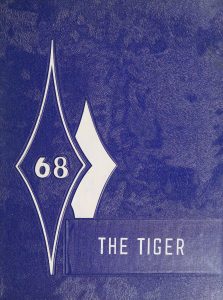
The cover of the 1968 edition of the Second Ward High School yearbook.
Thereasea Clark Elder was born in Charlotte, North Carolina on September 2, 1927. For over eighty years, she served her community as a nurse and community activist. In her lifetime, Elder established both the Greenville Historical Society and the Charlotte Mecklenburg Black Heritage Committee. A number of Charlotte institutions have been named in her honor, including the Thereasea C. Elder Community Health Leadership Academy and the Thereasea Clark Elder Neighborhood Park. For more information about Thereasea Clark Elder and her groundbreaking life and work, there is a 2014 article from the Charlotte Observer dedicated to her story, which can be accessed here.
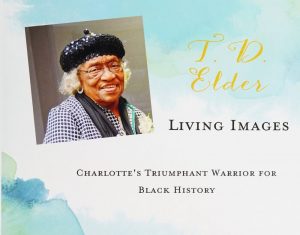
The cover of T.D. Elder Living Images: Charlotte’s Triumphant Warrior for Black History.
For more information about the Charlotte Mecklenburg Library, please visit their website.



![De Hi Sco [1947], page 74](https://www.digitalnc.org/wp-content/uploads/2017/01/DeHiSco_1947p74.png)
![The Viking [1952], page 44](https://www.digitalnc.org/wp-content/uploads/2017/01/Viking_1952p44.png)
![Carver College Annual Catalogue [1959-1960], page 2](https://www.digitalnc.org/wp-content/uploads/2017/01/Screen-Shot-2017-01-10-at-7.24.02-AM.png)
![Mecklenburg College Annual Catalogue [1962-1963], page 2](https://www.digitalnc.org/wp-content/uploads/2017/01/Screen-Shot-2017-01-10-at-7.23.38-AM.png)










